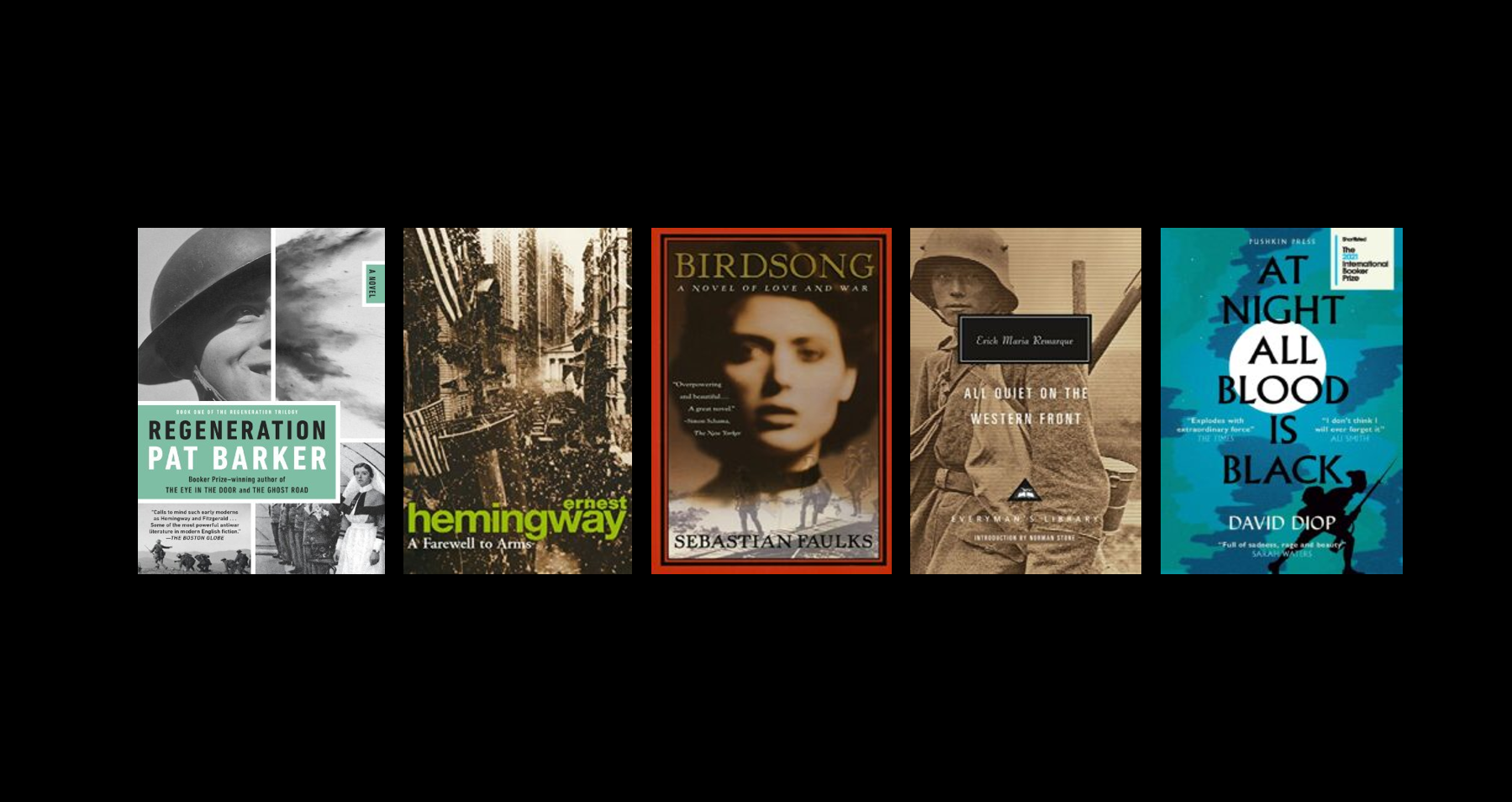The Best First World War Novels
Published: 21 April 2023
By Cal Flyn
via the Five Books web site

Best First World War Novels gang
Recommended by Alice Winn.
There are dozens of novels about the First World War, many of them well worth your time. Here, Alice Winn—author of In Memoriam, a bestselling story of forbidden love between two young soldiers—selects five of the very best, including autobiographical fiction by former officers and historical novels that bring humanity to the horror of the Great War.
Interview by Cal Flyn, Deputy Editor
You’ve very kindly agreed to recommend five of the best novels about the First World War. Our discussion ahead of this interview demonstrated to me that there is a remarkable amount of WW1 fiction, of a very high quality; why do you think this war has proven so fertile to literature?
That’s an interesting question. War is high stakes. If you look at ancient mythology, it’s all based on war—the more destructive the war, the higher the stakes. And what you add in with World War One, in particular, is a war that is in such high contrast to the civilised age it broke out within. Britain, for example, had experienced roughly 100 years of peace. Now, this is not completely true; they had been involved in wars abroad. But a hundred years of peace in their own land.
There had been a hundred years of freedom from destructive European land war. I mean, in 1870 the Prussians invaded France, but though that was interesting politically, it wasn’t so violent and destructive. So, fundamentally, having this absolutely catastrophically violent war crash onto the shores of a very peaceful society… I think that makes it resonate with us.
I think one of the reasons that World War One resonates so particularly with me, is that I really identified with the British Edwardian schoolboys who had grown up with the feeling that the institutions they were growing up within were secure and safe, and would never change. There’s this quote I want to read you, from the journalist Charles Edward Montague:
A century of almost unbroken European peace—unbroken, that is, by wars hugely destructive—had built up insensibly in men’s minds a consciousness of an unbounded general stability in the political as well as in the physical world. The crust of the political globe seemed to have caked, on the whole, almost as hard and cool as that of the elderly earth. It felt as if it were so firm that we could safely play the fool on it, as boys jump on the ice of a pond and defy it to break under them.
That was written in 1922, and when I read that, it really resonated with how I feel now. I often hear people saying, well, maybe democracy doesn’t work. I think they only say things like that because they feel it’s definitely going to keep going for the rest of their life. That to me feels like boys playing on the ice.
Read the entire article on the Five Books web site here:
External Web Site Notice: This page contains information directly presented from an external source. The terms and conditions of this page may not be the same as those of this website. Click here to read the full disclaimer notice for external web sites. Thank you.



